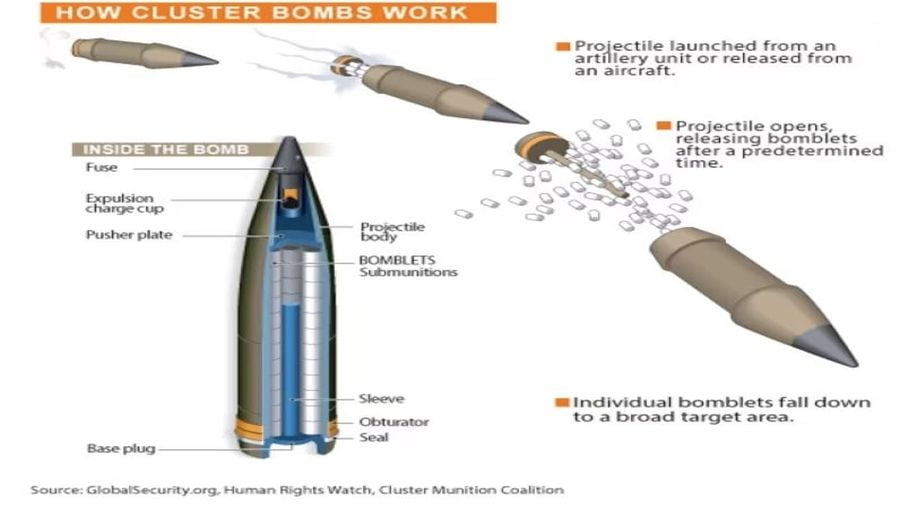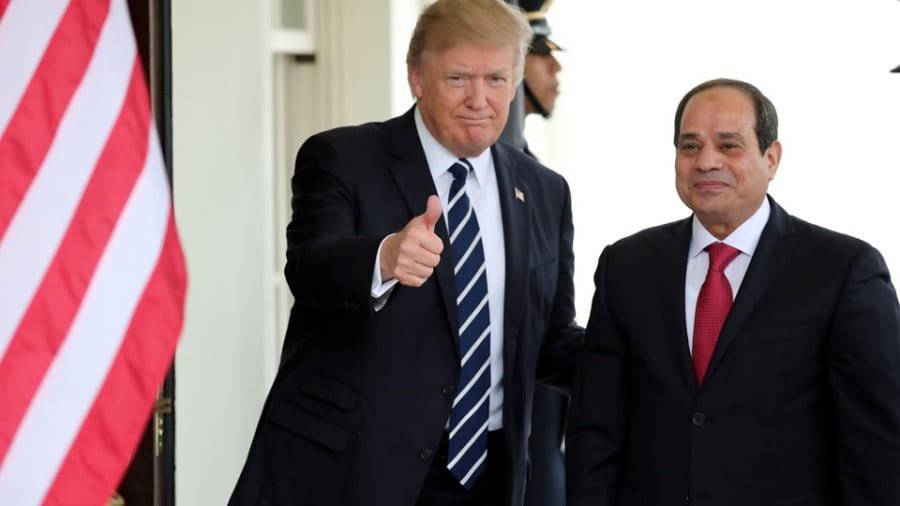Cluster Munitions Are the Latest Wunderwaffe That’s Doomed to Disappoint the West
The sequence of events detailed in this analysis leads to the conclusion that the West is preparing to approve Kiev’s resumption of peace talks with Russia by the end of the year once its proxy’s NATO-backed counteroffensive is forced to stop due to the onset of winter. Until then, however, they’re dispatching more wunderwaffen out of desperation that these arms can push Russia a bit further back and thus give their side a comparatively better position during these seemingly inevitable talks than it has at present.
Russian Ambassador to the US Anatoly Antonov accurately assessed that his host’s decision to send cluster munitions to Ukraine is “a gesture of desperation” after the failure of Kiev’s NATO–backed counteroffensive to achieve any major gains ahead of that bloc’s upcoming summit next week. This conclusion is derived from three related developments that occurred on the same day and which all leave no doubt that this is a last-ditch effect taken by Washington’s warmongers.
Biden told CNN’s Fareed Zakaria in a preview of their interview that’ll be published in full on Sunday that “The Ukrainians are running out of ammunition…This is a war relating to munitions. And they’re running out of that ammunition, and we’re low on it.” Zelensky himself admitted in late March that “We do not have ammunition”, but Western experts and trolls suppressed what he said since it went against their narrative, yet now it’s impossible to ignore after none other than Biden himself just drew attention to it.
The second development was Under Secretary of Defense for Policy Colin Kahl acknowledging that the “Ukrainian counter-offensive is going slower than anticipated”. Taken together, these two authoritative sources’ statements prove that NATO Secretary General Jens Stoltenberg was correct in describing his bloc’s proxy war with Russia in Ukraine as a “race of logistics”/”war of attrition” in mid-February. As can be seen, the bloc’s stockpiles are rapidly depleting without any progress being made on the ground.
And lastly, Russian Foreign Ministry spokeswoman shared a video on Telegram of former White House Press Secretary Jen Psaki describing Russia’s reported use of cluster munitions last year as a “war crime”, which confirms how desperate the US has truly become to suddenly ship these same arms to Ukraine. Like with the HIMARS, Bradleys, and multiple other Western deliveries to that country since 24 February 2022, cluster munitions are the latest wunderwaffe that’s doomed to disappoint the West.
President Putin revealed last month during his meeting with war correspondents that the West has “swept the warehouses clean” of shells, which is why they decided at the time to send depleted uranium ones as “the simplest option, because to expand production costs a lot of money and effort.” He later added that “If [the US] genuinely want to end today’s conflict via negotiations, they only need to make one decision which is to stop supplying weapons and equipment (to Ukraine). That’s it.”
That last-mentioned point showed President Putin’s interest in resolving the NATO-Russian proxy war in Ukraine through peaceful means via compromises as long as his country’s national security interests are ensured. Russian Foreign Minister Sergey Lavrov soon seconded this suggestion, followed twice by former President-turned-Security-Council-Deputy Medvedev here with reference to “compromises” in that hyperlinked article and also here, and most recently by Kremlin spokesman Dmitry Peskov too.
Nearly half a year after Stoltenberg described his bloc’s proxy war with Russia as a “race of logistics/”war of attrition”, he conspicuously omitted to promise the same pace, scale, and scope of armed aid to Kiev in his speech on Friday previewing next week’s NATO Summit, which was analyzed here. The day prior, NBC cited unnamed sources to exclusively report that Lavrov had secretly met with a group of former high-level US national security advisors during his trip to New York in April to discuss future peace talks.
That very same day on Thursday, Belarusian President Alexander Lukashenko predicted during a press conference that peace talks might resume in fall. According to him, “Maybe, this will happen if not in September then a little later. I’d rather not disclose any information, but the Europeans, France and Germany, have started talking about it.” In this diplomatic context, it would be amiss not to mention what Turkish President Recep Tayyip Erdogan said during a press conference with Zelensky on Friday.
Not only did he say that Turkiye has made the “most intense efforts” to end the NATO-Russian proxy war in Ukraine, but he also said that he expects to host his President Putin sometime next month, which the Kremlin has yet to confirm. Nevertheless, considering that Istanbul hosted the spring 2022 peace process that led to a signed draft treaty which could have ended the conflict had it not been sabotaged by the Anglo-American Axis, it can’t be ruled out that peace talks will figure into the agenda if his visit happens.
The sequence of events detailed thus far leads to the conclusion that the West is preparing to approve Kiev’s resumption of peace talks with Russia by the end of the year once its proxy’s NATO-backed counteroffensive is forced to stop due to the onset of winter. Until then, however, they’re dispatching more wunderwaffen out of desperation that these arms can push Russia a bit further back and thus give their side a comparatively better position during these seemingly inevitable talks than it has at present.
The West is doomed to be disappointed, however, since precedent suggests that no single armament or combination thereof can drastically shift the military-strategic dynamics of the “race of logistics”/”war of attrition” that have gradually been trending in Russia’s favor since Soledar’s liberation in mid-January. That being the case, the export of cluster munitions to Kiev will likely only lead to more bloodshed for both sides, though that outcome would also cynically serve the interests of Washington’s warmongers.







